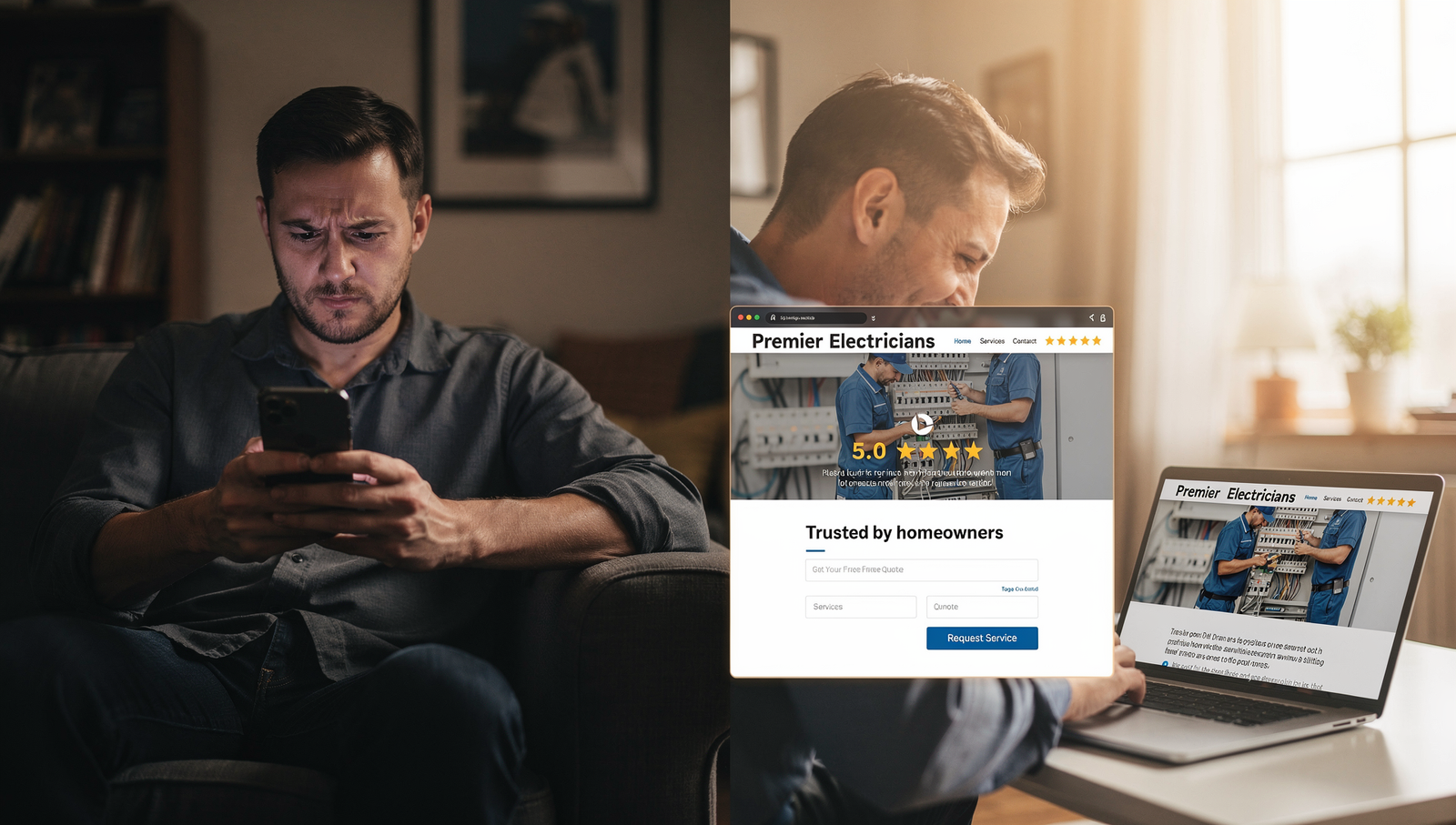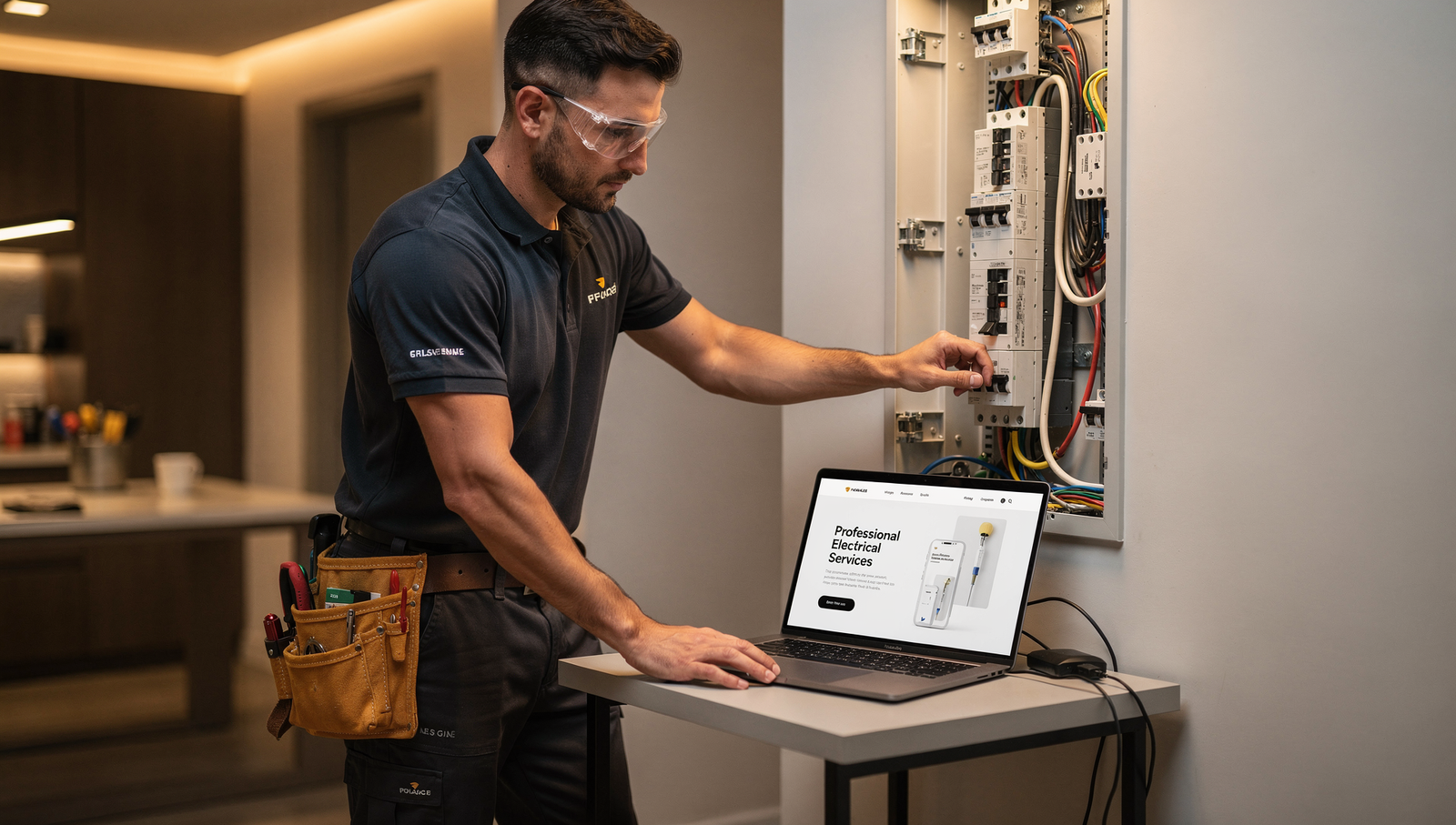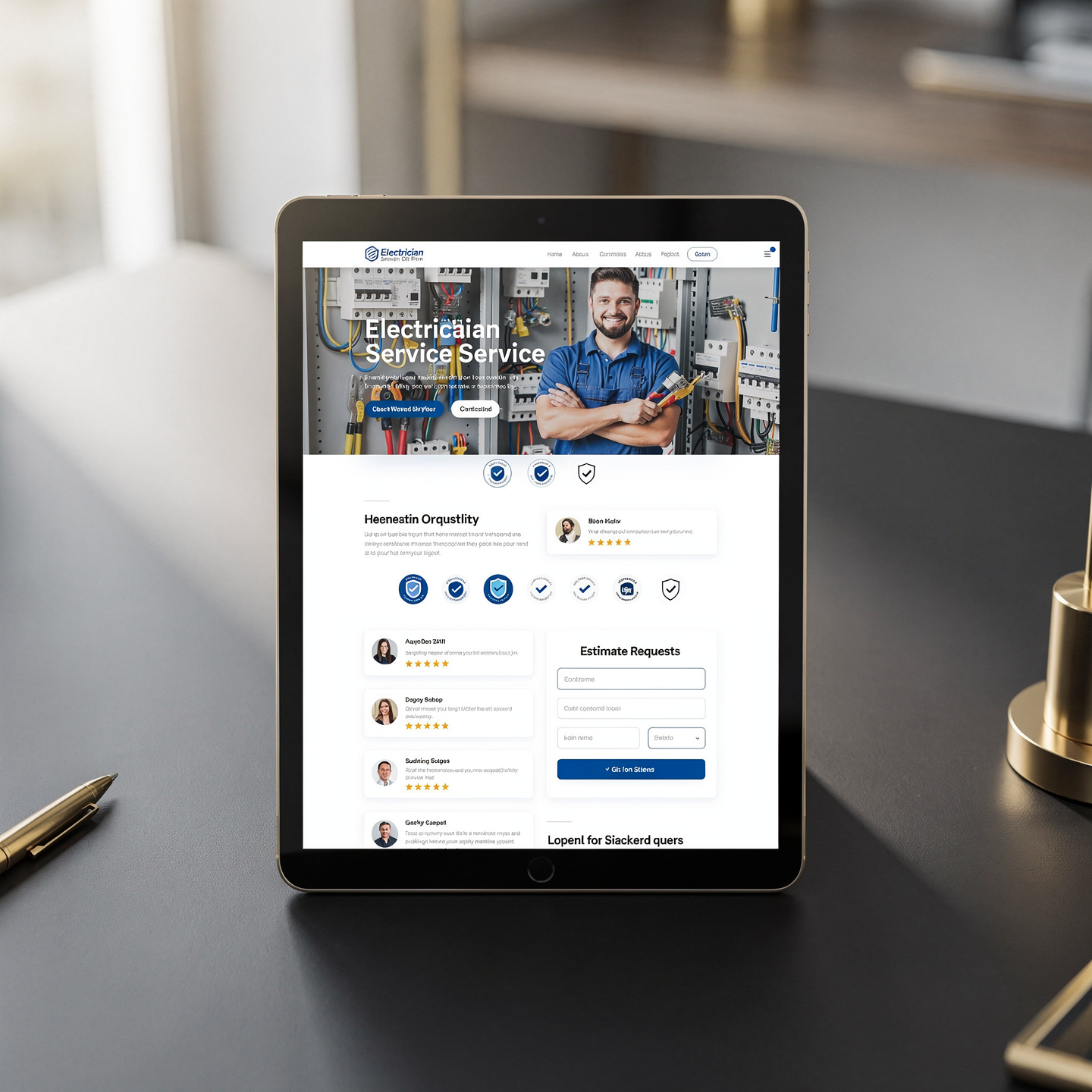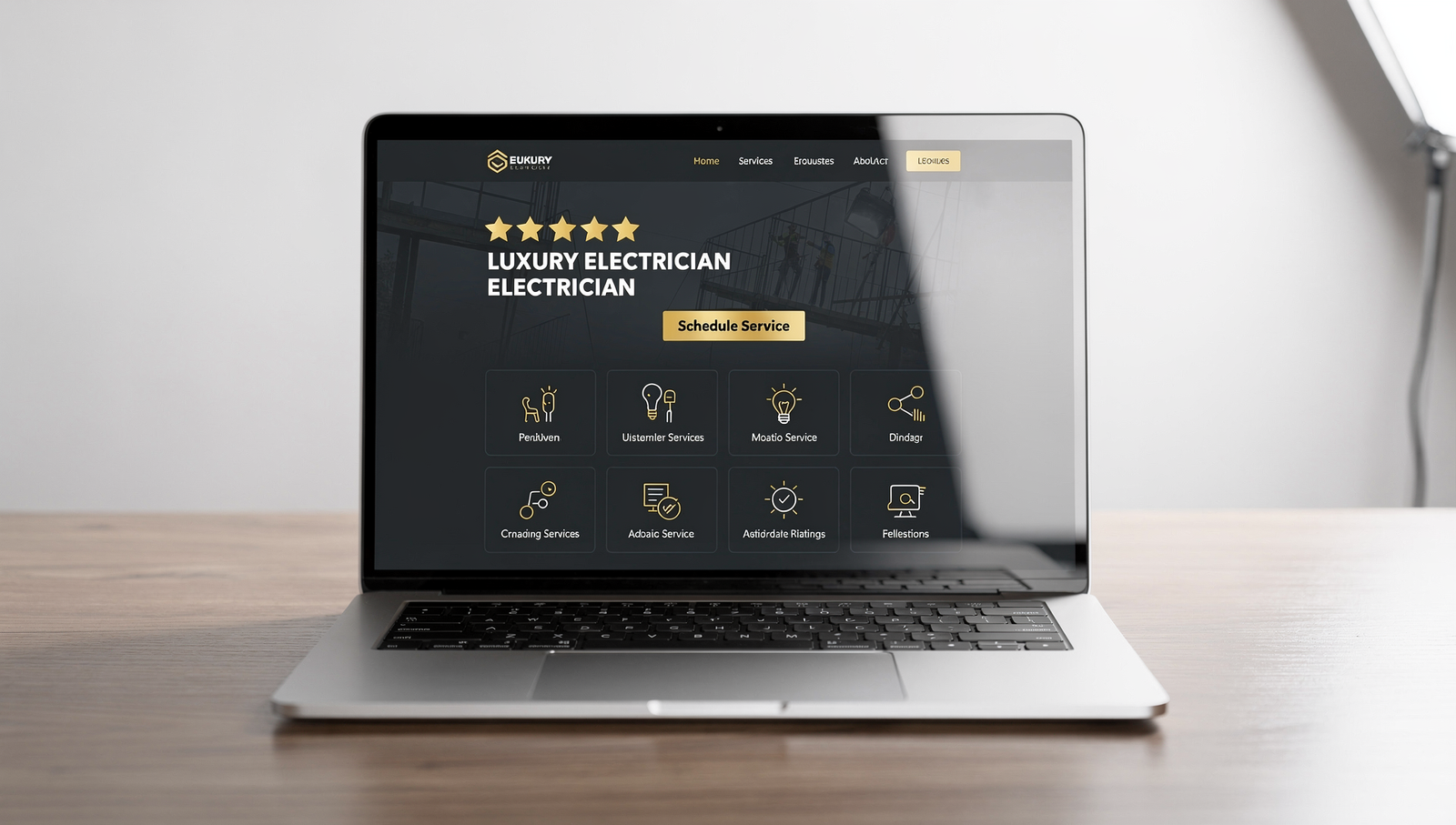5 Reasons Serious Realtors Need Their Own Website
Watch the video to learn why you need your own branded website as a realtor and what mistakes to avoid! NOTE: Free trials are all finished
Want More Clients Fast?
Steal This Website Rescue Kit to Get More Clients, More Calls, and More Sales on Autopilot
If you are serious about growth, understanding why realtors need their own website is step one. Your website is the only online space you fully control, and it can be a 24/7 listing showcase, lead magnet, and trust builder all in one.
Why Realtors Need Their Own Website: The Case For Ownership
Let’s start with your next listing appointment. Sellers want proof that you can create demand. Buyers want proof that you can move fast. A professional website lets you control the story, capture the lead, and follow up instantly. It also insulates you from platform changes and broker policies that you do not control. In 2024, 43 percent of buyers began their home search online, and 51 percent ultimately found the home they purchased on the internet, which makes your own site a primary channel for discovery and conversion.
The Benefits You Feel This Quarter
Control the lead path. On your site, every form, call button, and chat routes to you.
Build compounding SEO. Each page and blog post can rank for local searches and keep working for years.
Protect your brand. You pick the design, tone, and proof. No more generic brokerage subdomains.
Own the data. Analytics, form fills, and behavior data become your competitive advantage.
Integrate your tools. Connect CRM, email, SMS, and IDX so follow up is automatic.
Credibility And First Impressions Happen In A Blink
Humans form a first impression of a web page in about 50 milliseconds. Translation for busy agents: your hero section needs to work harder than a double espresso.
Stanford’s Web Credibility research shows that visible design quality and clear contact information strongly influence trust. Professional design, fresh content, and easy navigation make people believe you can deliver results.
Action moves:
Use a clean, mobile-friendly layout with strong contrast and readable fonts.
Put your phone number and primary call to action in the header.
Add real photography and testimonials.
Refresh your homepage monthly so it never feels stale.
For more practical ideas, see Branding Tips for Solo Agents.
The SEO Flywheel That Fills Your Calendar
Your website is the engine of organic traffic. Local content and authoritative guides build topical authority, which helps you rank for long-tail queries. When buyers or sellers type “best neighborhoods in [your city]” or “how to sell a house with tenants in [your city]” you want your content to appear.
Create pillar pages for your city, neighborhoods, schools, and lifestyles.
Publish weekly blog posts that answer real questions sellers and buyers ask.
Internally link each new post to your pillars and related articles.
Helpful reads to keep the flywheel spinning: Local SEO for Real Estate Agents, Real Estate Blog Post Ideas, How to Rank Higher On Google Maps, and Real Estate SEO Best Practices.
Paid Traffic Works Better When Your Website Converts
Paid ads are a light switch. Turn them on, traffic flows. Turn them off, traffic stops. A high-converting website makes every click pay you back.
Create focused landing pages for each campaign.
Match the headline and imagery to your ad.
Keep forms simple and offer a clear value, like a custom home valuation or a private tour.
Compare channels with Facebook Ads vs Google Ads for Realtors, and design better pages with High Converting Realtor Landing Pages and Real Estate Landing Page Optimization.

Speed, Mobile, And User Experience Decide Bounce Or Booked
Page speed is not a nice-to-have. As load time goes from 1 to 3 seconds, the probability of a bounce jumps 32 percent. On mobile, a slow site can kill engagement entirely. Over 60 percent of searches in the United States happen on mobile devices, and Google now indexes primarily from the mobile view. Your site must be fast and friendly on a phone.
Action moves:
Compress images, lazy load below-the-fold media, and use server-side caching.
Keep fonts lean and scripts minimal.
Test your pages with PageSpeed Insights and fix bottlenecks.
Check Best Free Tools for Realtors for utility tools that help you test and tune performance.
Lead Capture That Feels Helpful, Not Pushy
Simple, thoughtful forms convert better. Fewer, smarter fields usually increase completion rates. Long forms can work when the value is high, but test carefully and avoid multiple dropdowns and large textareas, which often depress conversions.
High converting ideas you can ship this week:
A three-step home valuation form with progress cues.
A “VIP early access” list for new listings.
A neighborhood guide download that unlocks after email.
A 2-minute “What’s my buying power” quiz that emails a summary.
Build and refine with Real Estate Website Conversion Tips, How to Build a Seller Funnel, and Email Marketing for Real Estate Agents.
Reviews And Social Proof Where They Matter Most
Most people scan reviews before contacting a local business. BrightLocal’s 2025 survey shows consumers often rely on one or two review sites before making a choice, so showcasing your best Google and Zillow testimonials on your own site reduces friction and keeps users from wandering away.
Action moves:
Pull recent Google reviews into your homepage and listing pages.
Add a short reviewer bio line when possible.
Create a “Results” page that highlights case studies with before and after stories.
Pair with Comprehensive Seller Lead Follow-Up Guide and Real Estate Success Story Blogs to structure your proof.
IDX That Serves Your Clients And Captures Leads For You
Your website with IDX is a better experience than sending traffic to portals. Visitors can browse listings, save favorites, set alerts, and request tours without leaving your brand environment. You keep the data and the relationship.
If you are still deciding on tech, read Best IDX Plugins For WordPress, and IDX Alternatives for Realtors.
Portability And Platform Risk You Can Actually Control
Platforms change rules. Algorithms shift. Policies update. Consider the recent policy move that sparked lawsuits and debate around public listing exposure and how portals decide what appears in search. Owning your site keeps you visible even when platform policies evolve.
Action moves:
Host your own market updates and coming-soon pages within compliance.
Maintain an active blog and resource hub that never depends on third-party reach.
Use your site as the primary link on every profile so traffic flows to assets you own.
Analytics Turn Guesswork Into Smart Follow Up
GA4 and heatmaps show you which pages get attention, where people drop off, and which sources produce the best leads. With this information you can double down on what works.
Action moves:
Set up goals for calls, form submissions, chat starts, and listing saves.
Tag every campaign link so you can see ROI by channel.
Build a simple dashboard that reports weekly.
Reference Google Analytics Setup for Realtors to configure tracking the right way.
Your CRM And Automations Close The Loop
A great site without a great follow-up system is like a gorgeous listing without showings. Connect your website to your CRM and automate first-touch responses.
Action moves:
Route new leads to your CRM with tags for source and page.
Send instant email and SMS confirmations.
Use lead scoring to prioritize callbacks.
Get practical comparisons in Top 5 Best CRMs for Realtors and message ideas in Automated Follow-Up for Realtors.
What To Put On Your Website If You Are Starting Today
Here is a fast blueprint that many successful agents follow:
Homepage that sells your value
Big promise. Short proof. Clear CTA to book a call or get a valuation.Listings hub with IDX
Saved searches by lifestyle, neighborhood, and price band.Seller center
Home value tool, prep checklist, marketing plan, and net sheet explainer.Buyer center
Financing primers, timeline guide, and private tour request.Neighborhood pages
Schools, commute times, dining, video walkthroughs, and recent sales.Results and reviews
Case studies with photos and short stories that show problems solved.Resources blog
Weekly posts that answer questions and capture long-tail search.
Build the content pieces with High Converting Realtor Landing Pages, Real Estate Video Background Websites, and Best Website Layout for Realtors for design guidance.
Real Scenarios Where Your Website Wins
The serious seller. They see your Google Business Profile, click to your site, read your seller center, and complete the valuation form. You call within 10 minutes and book the appointment.
The relocating buyer. They find your “Moving to [City]” guide, browse saved searches, and join your VIP alerts. Your automated follow up sends matching properties within hours.
The referral who is still shopping. A friend mentions you, they skim your Results page and reviews on your site, then schedule a consult because you look prepared and trustworthy.
Each scenario relies on a website that is fast, credible, and conversion focused. Remember, slow pages spike bounce rates and kill interest on mobile.
Action Checklist You Can Tackle In The Next 7 Days
Buy a memorable domain and connect it everywhere.
Launch a clean homepage hero with one offer and one button.
Add IDX search with saved searches by lifestyle and neighborhood.
Publish three core pages: Seller center, Buyer center, Reviews.
Post one blog that answers a burning local question.
Set up GA4 goals and connect to your CRM.
Speed tune for mobile. Aim for under 2 seconds to first interaction.
The Big Picture
You need a place where your brand, your proof, and your pipeline come together. That is your website. It turns strangers into subscribers, browsers into booked appointments, and visitors into clients. It compounds over time, protects you from platform changes, and gives your follow-up system a steady diet of qualified conversations.
Digital Dream Homes exists to help you ship that advantage. We design luxury, fast, IDX-enabled WordPress sites that are built to rank and built to convert. If you want a site that finally works as hard as you do, book a free consultation and let’s map your launch plan. When you are ready to take control of your online presence, remember that the smartest reason why realtors need their own website is to own the path from first click to closed deal, and to prove every day why realtors need their own website.
Matt Pieczarka
Want a Free Website Audit?
Fill out your information below and we will send you a personal screen share video of tips on how to make your actual website better!
See How Many Closings You're Losing to Zillow!
Click Here to Use our Calculator to See How Many Clients Zillow is Taking From You Per Year!
Other Posts About Small Business Websites You Might Like…
- Small Business Website Design Tips for Small Business Owners
- How to Create a Professional Website for Your Small Business
- Common Small Business Website Mistakes That Are Costing You Customers
- Best Homepage Layout for Small Businesses
- Website Conversion Tips for Small Business: How to Make Your Website Convert Visitors into Clients
- How to Make Small Business Website Look Professional: Simple Design Tweaks That Boost Small Business Credibility
- Best Website Colors For Small Business Branding: How to Choose the Right Colors for Your Brand
- Why Small Business Websites Fail: Why Your Website Isn’t Bringing in Leads
- Mobile Friendly Website Tips For Small Business: Mobile Optimization Tips for Local Business Websites
- Contact Page Optimization for Small Business: How to Create a “Contact Us” Page That Actually Gets Results
9 Functional Medicine Website Designer Tips to Grow Faster
9 Functional Medicine Website Designer Tips to Grow Faster Watch the video to learn one psychological SEO trick to build more trust and get more leads from your website! Wan
7 Functional Medicine Website Design Moves That Get Patients
7 Functional Medicine Website Design Moves That Get Patients Watch the video to learn about the best layout to get more leads and patients guaranteed! Want More Clients Fast
11 Electrician Website Designers That Turn Clicks Into Calls
11 Electrician Website Designers That Turn Clicks Into Calls Watch the video to learn the best layout for best results! https://youtu.be/XaEbNPZxi0U?si=kT1Cru8S2SMJSPNx Want More C
11 Electrician Website Help Fixes That Turn Clicks Into Calls
11 Electrician Website Help Fixes That Turn Clicks Into Calls Watch the video to learn how to structure your website for the best return on investment! https://youtu.be/XaEbNPZxi0U
11 Electrician Web Design Company Questions to Ask
11 Electrician Web Design Company Questions to Ask Watch the video to learn the best website layout for the most lead conversions! https://youtu.be/XaEbNPZxi0U?si=SgxjOWdd7F6f4Mtg
13 Electrician Website Templates That Turn Clicks Into Paid Jobs
13 Electrician Website Templates That Turn Clicks Into Paid Jobs Watch the video to learn the best template layout for the best results! https://youtu.be/XaEbNPZxi0U?si=rGg1WlUWlmH
11 Electrician Website Services That Bring In More Calls
11 Electrician Website Services That Bring In More Calls Watch the video to learn the best website layout for the best results https://youtu.be/XaEbNPZxi0U?si=rGg1WlUWlmHTg73v Want
12 Electrician Website Upgrades That Win More Jobs
12 Electrician Website Upgrades That Win More Jobs Watch the video to learn the best website layout to get the most bang for your buck! https://youtu.be/XaEbNPZxi0U?si=uFqsnSFvenQ1
5 Electrician Website Design Company Upgrades That Win Jobs
5 Electrician Website Design Company Upgrades That Win Jobs Electrician website design that earns trust fast and drives more calls. See the must-have upgrades and book more jobs. h









